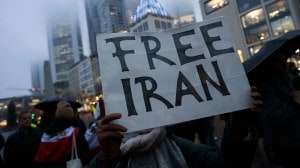Why we need 100 per cent voting
The recent election in Gujarat again highlighted the problem of not enough citizens exercising their right to vote. That there should be 10...

The recent election in Gujarat again highlighted the problem of not enough citizens exercising their right to vote.
That there should be 100 per cent voting became a hot issue when the ulema headquartered at Kichhochha Sharif in UP advertised a fatwa exhorting all Muslims to cast their votes only in favour of the Congress. This was a blatant expression of what is known as vote bank politics.
Vote banks are invaluable because only half or 60 per cent of the electorate bothers to go to the polling booth on election day.
Such partial voting induces political parties to wish that the adversarial voters did not exercise their franchise. On the other hand, one must have sections of the electorate who can be relied on.
If everyone were expected to vote, the parties would not be able to win with the help of sectarian vote banks. For example, in Gujarat, many a politician believed that, given the same total number, the Muslim vote is twice as valuable as a Hindu one. The reason was that almost every Muslim went to the booth on the polling day whereas half or more of the Hindus did not bother to exercise their franchise.
But more importantly, the indifference of the Indian voter results in an enormous waste of money.
Every year in January, the Election Commission conducts a summary revision of the electoral rolls across the country. The electoral rolls so amended must be printed. Every five years or on the eve of a likely election, the commission conducts an intensive revision of the rolls.
This is an enormous exercise, covering some 60 crore people. Thereafter, new electoral rolls are printed in a number of copies for use by all candidates in the election to come.
With so much money spent by the state government, if, say, 40 per cent of the voters do not even bother to go to the polling booth, is it not a pity? Further, if half the people do not exercise their franchise, does it not make such a system only half a democracy?
A system which supports part voting could be described as a semi democracy or a demi oligarchy, especially if one remembers that the representatives who get elected do so by only the majority of voters.
The way out of such a distortion is to make voting compulsory. In Australia, it is incumbent on every citizen to exercise his franchise. If he fails to do so, without a justification, he is asked to pay a fine of some 100 dollars. In our country, such a punishment for not voting may not be practicable.
What is suggested is that anyone who fails to vote, without justification, should result in his name being deleted from the electoral rolls. He should be prepared to lose his vote, although not for ever.
Ironically, the poorer the person, the more anxious he is to enjoy his voting right. That is his occasion to assert himself and make his problems known. Nevertheless, few citizens, poor or rich, educated or otherwise, bother to check whether their names continue to appear on the electoral rolls.
It is not widely realised that maintaining an accurate electoral roll is as much the citizen8217;s responsibility as that of the Election Commission.
- 01
- 02
- 03
- 04
- 05































